Trending
Opinion: How will Project 2025 impact game developers?
The Heritage Foundation's manifesto for the possible next administration could do great harm to many, including large portions of the game development community.

Featured Blog | This community-written post highlights the best of what the game industry has to offer. Read more like it on the Game Developer Blogs or learn how to Submit Your Own Blog Post
A study of the popularity of primary and additional mechanics in mobile games from US top-grossing lists on Google Play and App Store.

The fact is, many game developers are guided by the commercial success of projects from GooglePlay and AppStore’s US top grossing lists. They direct their attention to the top 20 highest grossing games, spawning countless Clash of Clans or Candy Crush clones. However, games from the "deeper" top shouldn’t be written off: the profit they make is quite high. This is why our team decided to analyze more than 300 games by functional blocks and define what it is that makes them successful.
Every game can be characterized by its genre, or by the combination of the primary and additional gaming mechanics. Let us analyze two genres – “farm” and “city builder” – as an example. In both cases the player usually has the ability to build houses and harvest crops. The difference between the genres lies in the ratio of planting/harvesting mechanics to building construction. In farming games the player devotes most of his/her attention to planting and harvesting, in city building games the focus is placed on construction. From the point of view of game mechanics, farming games have "farm" as their primary mechanic and "city builder" as their additional mechanic; in case with city building games it's the opposite. That's why we decided to classify games by mechanic, without singling out combined mechanics as separate genres. Preference was given to conventional game mechanic names, but we also gave subjective names to certain mechanics.
More than half of the top list is occupied by RPG adventures, slots and strategy maps. The diagram shows the percentage of games containing a specific primary mechanic within the highest grossing list.
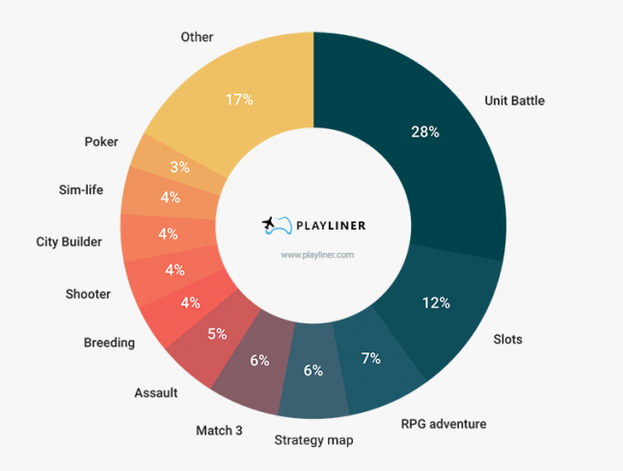
Let us make a brief list of the most common mechanics in descending order of popularity.
A battle between units and characters on the game field. The game may be card-based or not card-based, the battle may be automatic or manually operated by the player, presented as a step-by-step or real-time fight. As a rule, games of the RPG genre have Unit battle as their primary mechanic.
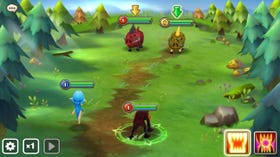

These are the games most frequently encountered across the top lists. Admittedly, they don't score the very first places, but the sheer number of them suggests that commercial success is a tangible possibility for a game of this type.
Slot machine games. This is the main component of gambling/casino games. The percentage of slot machines among the top grossing games has hardly changed over the last three years. The top spots have been occupied by practically the same games since 2013.


The player explores the world (open or divided into locations), encounters various characters, completes their quests, searches for objects. Games based on this mechanic often include Unit Battle fights.


The player trains his/her troops before using a global map to send them to opponent’s settlement. After a while the player receives a notification about the results of the fight, e.g. a victory.
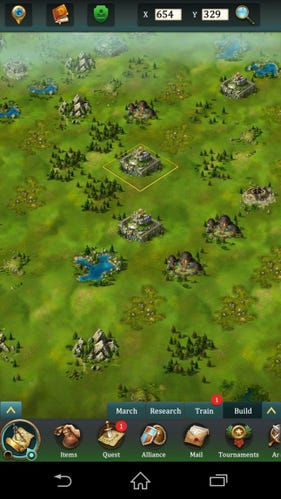

Collecting three elements in a row. The highest grossing list contains quite a lot of games developed by King.com, other developers are not widely represented among the top titles.


The tower offense mechanic. All Clash of Clans type games belong here. Very few Clash of Clans clones enter the top lists and make considerable profit.
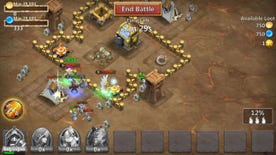
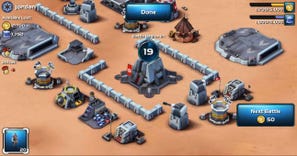
Games built around raising characters with the purpose of breeding, evolving and obtaining new character types. Nearly all the games based on this mechanic are about dragons.


Games based on shooting enemy targets in 2-D or 3-D space. The weapon could be any: a gun, a tank, a bow, etc. This is one of the few mechanics that really managed to increase their presence: from 1.5% to 4% over the last three years. All the other mechanics are either exhibiting slow progress or losing in popularity.
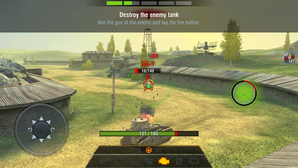

Building constructions on the playing field to create a town type settlement. The number of city builder games on the top list used to be much higher in the past.


Life simulator games where the player controls characters' everyday life. There are only a few games built on this mechanic among the top lists, but each of them belongs to a different publisher. No major publishers are there to occupy all the positions within the niche.


Several players gather around a table to play poker (a gambling game.)


We have further analyzed all the games that contain additional mechanics. Pictured below is a diagram of the percentage of games that contain certain additional mechanics in relation to the total number of games.

The most popular additional mechanics turned out to be the two mini-games: “wheel of fortune” and “guessing prize” (or "guess the prize in a box"), present in virtually every game in the form of a standard daily bonus. In fact, there are other far more interesting variations of bonus games out there, but they haven’t gained such widespread popularity.
Finally, here is a chart that shows how specific game mechanics interact with each other.
This indicates the percentage of games that contain specific primary and additional mechanics. For example, 7% of the games that contain the “match3” mechanic have “city builder” as the additional mechanic.
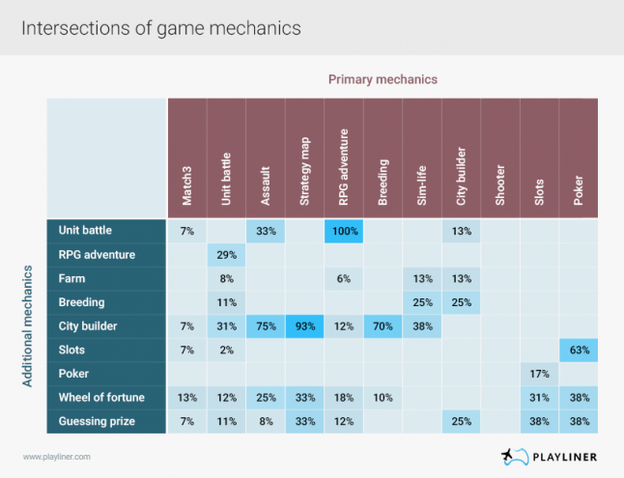
The following conclusions can be drawn from this chart:
casino games live their own life;
“city builder” gets along with virtually every genre. Building your own settlement won't be out of place in a tower defense game;
you can and should advertise your game not only to the audience of your niche, but also to the audience interested in related genres with frequently intersecting mechanics.
Thanks for the attention!
Read more about:
Featured BlogsYou May Also Like